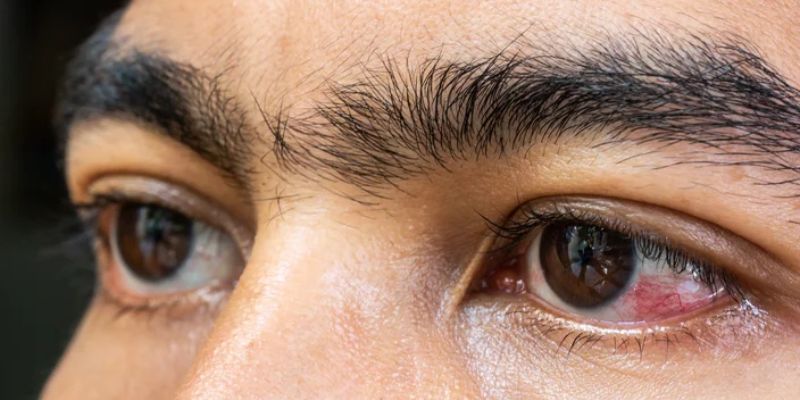Vitamin D Deficiency Symptoms
Nov 11, 2023 By Madison Evans
Do you have persistent fatigue or muscle weakness and don’t know why? You may suffer from vitamin D deficiency, a common and easily treatable health issue affecting millions worldwide. Vitamin D plays a crucial role in our overall well-being and can be obtained naturally through exposure to sunlight, but many of us just aren’t getting enough of it.
In this blog post, we explore the symptoms associated with vitamin D deficiency—key indicators that could help you recognize if you are affected early. We also look into treatment options for those who may already be deficient so that they can live healthier lives effectivly. Read on to see if this important nutritional disorder might play a part in your life!
Overview of Vitamin D and its Purpose
Vitamin D is a fat-soluble vitamin that has an important role in maintaining optimal health. It helps the body absorb with calcium, which is necessary for strong bones and strong teeth, and supports cell growth, nerve function, and the immune system. Vitamin D also helps regulate blood pressure and cholesterol levels.
Since our bodies cannot produce enough vitamin D independently, we must obtain it from natural sources like sunlight or food. While most of our dietary needs for Vitamin D can be obtained through a balanced diet, many people require additional supplementation to meet their daily requirements.
In addition to being essential in maintaining bone health, vitamin D is also important for other functions in the body. It helps regulate the immune and neuromuscular systems, which are essential for proper brain and nerve development. Vitamin D also regulates hormones and sugars, which are crucial for a healthy metabolism.
Symptoms of Vitamin D Deficiency
Vitamin D deficiency is a common and easily treatable health issue, yet it affects millions worldwide. Since the human body cannot produce enough vitamin D independently, we must obtain it from our diet or sunlight exposure.
Lack of sufficient Vitamin D intake can lead to various symptoms affecting our health, including bone and joint pain, fatigue, irritability, impaired wound healing, and even depression.
Here are symptoms that could indicate a Vitamin D deficiency:
1. Fatigue: It can be difficult to tell if you’re tired or have an underlying vitamin D deficiency. Most people who suffer from Vitamin D deficiency experience persistent and severe fatigue that won’t go away no matter how much sleep they get.
2. Muscle Aches: If you are experiencing unexplained muscle aches, it could be a sign of vitamin D deficiency.
3. Bone Pain: Low Vitamin D levels can weaken bones, resulting in pain or tenderness.
4. Trouble Sleeping: Not getting enough Vitamin D can make it difficult to get a good night's rest, leading to sleepiness during the day and difficulty concentrating.
5. Frequent Infections: Low vitamin D levels can weaken the immune system, making you more susceptible to infections and illnesses like colds and flu.
6. Low Mood: Vitamin D deficiency has been linked to depression and other mood disorders.
7. Hair Loss: A lack of vitamin D can lead to hair loss, thinning hair, and baldness in some people.
8. Slow Healing Wounds: Vitamin D helps the body produce collagen necessary for wound healing. Without enough Vitamin D, wounds can take longer to heal.
9. Impaired Cognitive Function: Low vitamin D levels can affect the brain and cause problems with memory, focus, and concentration.
10. Digestive Issues: A Vitamin D deficiency can lead to various digestive issues such as bloating, constipation, or diarrhea.
Causes of Vitamin D Deficiency
Inadequate sunlight exposure, obesity, certain medications and other medical conditions can cause vitamin D deficiency. People with darker skin tones are also more likely to be deficient in Vitamin D due to the natural protection from the sun's UV rays.
Additionally, those with digestive problems or those older than 65 may not absorb enough vitamin D due to a lack of digestive enzymes.
Diagnosing Vitamin D Deficiency
If you believe you may be suffering from Vitamin D deficiency, getting a proper diagnosis from your healthcare provider is important. Your doctor will likely do a blood test to measure the amount of vitamin D in your system and determine if supplementation is necessary.
Treatment for Vitamin D Deficiency
Once a vitamin D deficiency is diagnosed, it can be treated with dietary changes, supplements, and sunlight exposure. Eating foods rich in Vitamin D, such as fish, eggs, or fortified dairy products, can help increase your intake.
Additionally, taking vitamin D3 supplements may benefit those suffering from a deficiency. Sunlight exposure is also an excellent source of vitamin D, so be sure to get outdoors for at least 10-15 minutes per day.
Prevention Tips to Avoid Vitamin D Deficiency
The best way to avoid Vitamin D deficiency is to be proactive about getting enough sunlight and eating a balanced diet rich in vitamin D. Additionally, taking vitamin D supplements can also help ensure that you’re getting the proper amount of this important nutrient each day.
Vitamin D deficiency is an easily treatable health issue affecting millions worldwide. If you believe you may be suffering from a Vitamin D deficiency, recognizing the symptoms and seeking early help is key to a successful treatment plan. With the right knowledge and resources, you can ensure your vitamin D levels are in check and you remain healthy.
Talk to your healthcare provider if you’re concerned about your Vitamin D levels or think you may be deficient. They can help assess your levels and provide the right advice on how to
maintain optimal Vitamin D levels.
FAQs
Q: How is Vitamin D deficiency treated?
A: Treatment for vitamin D deficiency typically involves taking daily supplements of vitamin D3 or a combination of vitamins and minerals. It is important to consult your doctor so they can determine the correct dosage for you. Diet modification, exposure to sunlight, and regular exercise can also help improve your vitamin D levels.
Q: What are the long-term effects of Vitamin D deficiency?
A: Left untreated, vitamin D deficiency can lead to various health issues, including osteoporosis, heart disease, and depression. It is important to seek medical help if you suspect your symptoms could be related to low vitamin D levels.
Q: Are there any other ways to increase Vitamin D levels?
A: Besides sun exposure and diet modification, supplementing with a high-quality vitamin D3 can help raise your nutrient levels. Additionally, regular exercise and eating a balanced diet with plenty of calcium-rich foods can help support healthy vitamin D levels.
Conclusion
Vitamin D deficiency is a common but easily treatable health issue. If you are experiencing persistent fatigue or muscle weakness, it could be a sign of vitamin D deficiency and should be addressed with your doctor as soon as possible. With the right treatment plan, restoring healthy vitamin D levels and getting back to feeling your best is easy.
-
 Beauty Nov 21, 2023
Beauty Nov 21, 2023Decoding Facial Blemishes: Types, Causes, and Home Remedies
Managers of face imperfections aim for clear, appealing skin. Explains blemish kinds, causes, and home treatments.
-
 Condition Jan 19, 2024
Condition Jan 19, 2024Red Spot On Eye: Causes, Symptoms And Treatment
Have you noticed a red spot in your eye? This article explores the potential causes and treatments for eye discoloration. Get expert advice and learn more about caring for your vision here!
-
 Beauty Dec 26, 2023
Beauty Dec 26, 2023Tea Tree Oil
Learn about tea tree oil, its hundreds of uses, and why it has been used for centuries as an essential oil. Learn how to use this powerful antiseptic to treat acne, itchy skin, dandruff, and more!
-
 Food Nov 08, 2023
Food Nov 08, 2023Improve Your Mood: Foods that Increase Serotonin Levels
Explore how certain foods can increase your serotonin levels, providing essential support for mood regulation and overall mental well-being.

